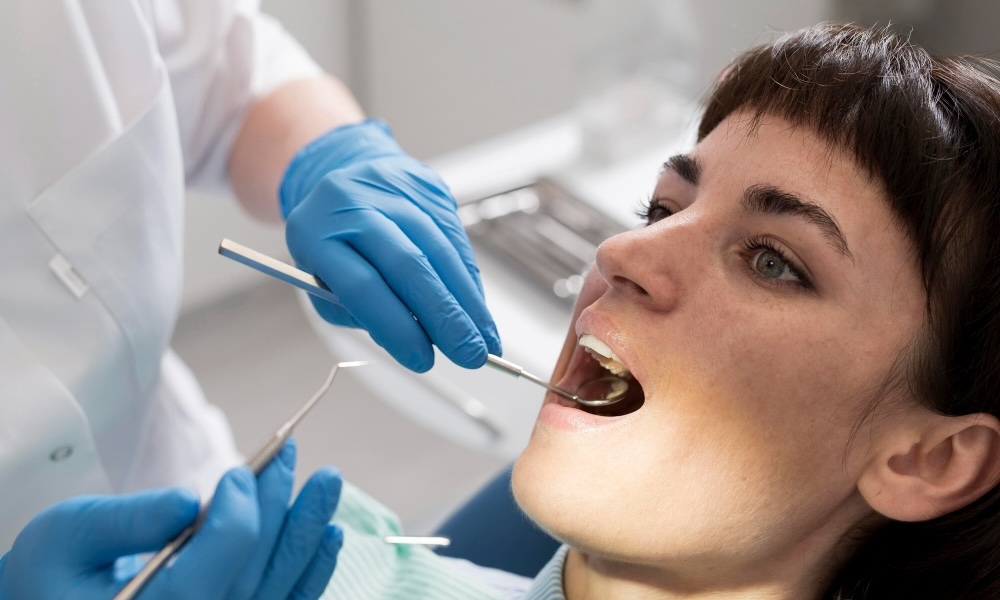Root canal treatment is ideal for a severely infected or damaged tooth. And while it is a highly effective procedure that can save and preserve your natural tooth, it can be costly and uncomfortable—see our guide to root canal cost in Vancouver. Also, the additional maintenance post-treatment to avoid future reinfection and other dental issues is a lifetime task.
That being said, wouldn’t it be better to avoid needing a root canal in the first place? This blog will provide you insights into root canals, how important preventive care is when it comes to your oral health, and the best tips to maintain your smile to avoid dental problems down the road.

Understanding Root Canals
You may need a root canal if the decay or damage on your tooth is too deep or big for a successful dental filling. To save the tooth, removing the infected pulp tissue and cleaning and sealing the root canals are done to eliminate bacteria and prevent further infection.
Not all root canal procedures are the same. Some teeth have multiple canals and others have complex anatomy. For final restoration of the tooth, depending on the extent of the damage, a filling or crown may be recommended. These are factors that contribute to the complexity of the case. Complex cases require more complicated and expensive treatments.
Before you proceed with the procedure, your dentist will discuss a customized treatment plan to address your individual needs.
Importance of Preventive Dental Care
Ultimately, avoiding the need for a root canal is a more sustainable option for the long term. This can be successfully done through preventive dentistry to defend the tooth against decay and damage. Some preventive dental care that can improve and maintain your oral health are:
- Routine dental check-ups and cleanings
- Good oral hygiene
- Healthy and balanced diet
- Fluoride treatment
By providing preventive care and treatment and addressing minor dental issues promptly, you can avoid dental problems that may eventually lead to the need for a root canal.
Good Oral Hygiene and Health Care Practices
One of the most important preventive dental care tips is to incorporate an effective at-home oral hygiene routine. Here are some practices that you can include in your routine:
- Brush twice a day – Use a fluoride-rich toothpaste and soft-bristled toothbrush when you brush your teeth. These will remove food particles and plaque that may cause decay.
- Floss daily – Flossing removes food debris stuck between the teeth and under the gumline and helps prevent gumline cavities.
- Use a mouthwash – An antiseptic mouthwash can swish away bacteria to prevent gum disease. It also keeps the breath fresh and clean.
- Healthy diet – Limit sugary and acidic foods as this can contribute to tooth damage.
- Stay hydrated – Water helps wash away food particles and promotes saliva production to naturally cleanse the mouth.

Early Detection and Treatment
Routine dental check-ups are recommended to help your dentist spot dental issues and provide appropriate treatment before they become a serious concern.
As for a root canal, it will usually start with a small decay which can be restored with a dental filling. But if left untreated, your dentist may require the more extensive treatment option which is root canal.
Knowing the signs and symptoms of an infected tooth is also key to avoiding a root canal. Persistent toothache, tooth sensitivity, gum swelling, and tooth discolouration are some warning signs that you should look out for. As soon as you experience any of these, schedule a visit with your dentist for proper assessment and management.
Conclusion
Stay proactive and on top of your dental health by taking the necessary steps to avoid the need for a root canal. This includes diligent preventive care and food oral hygiene practices. With these crucial points, you can ensure a healthy and pain-free smile for years to come.
